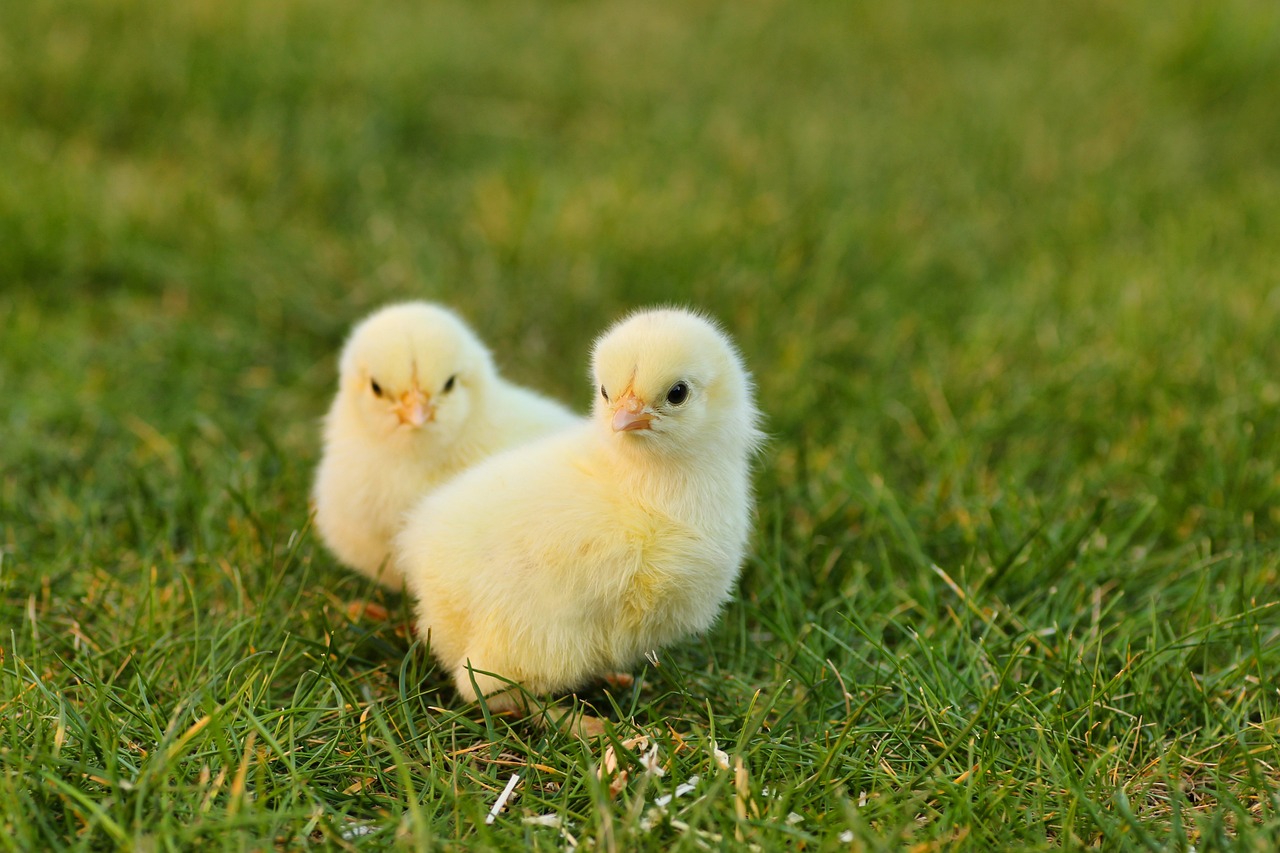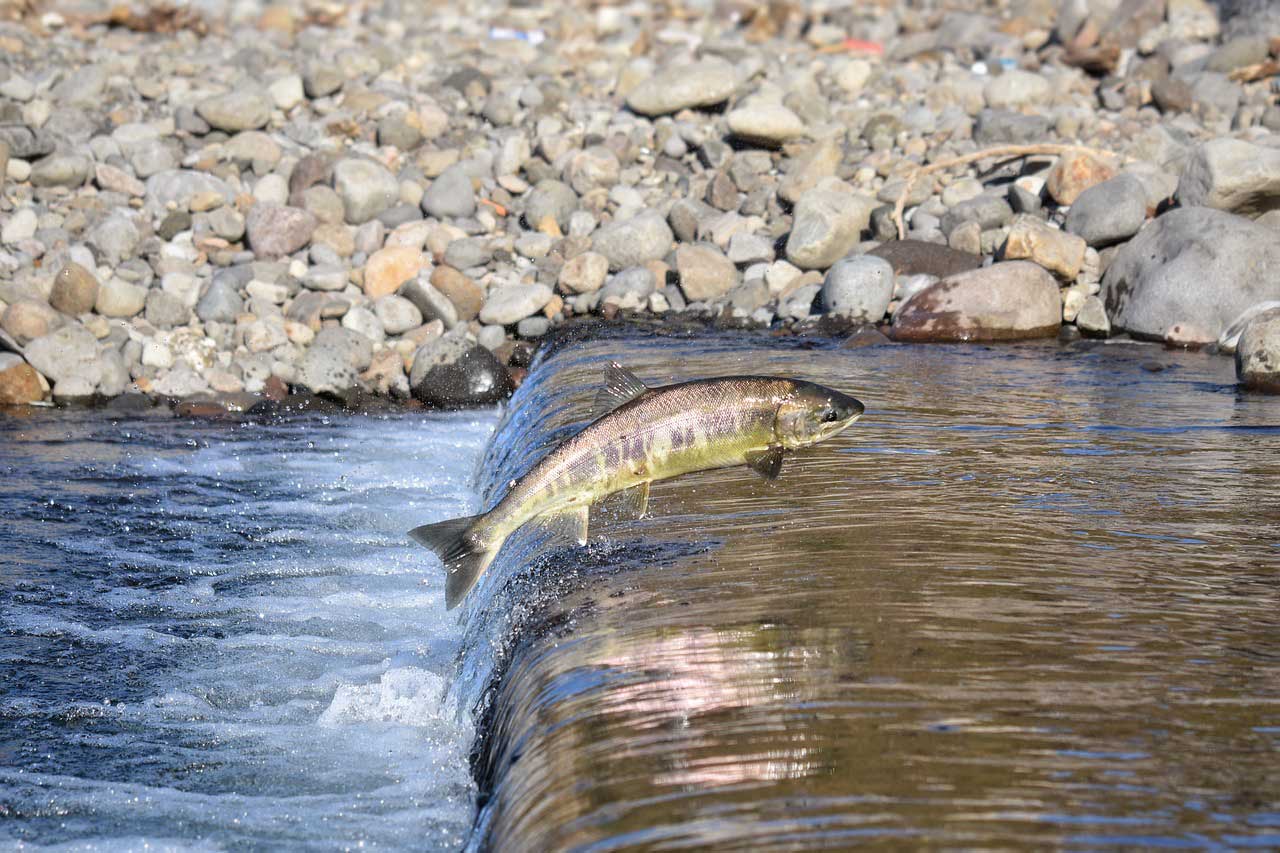But Still Chooses to Look Away.
Désiré Mouanga-Biayenda is the Chief of Procurement of Gategroup, one of the most influential names in the global food industry. With that power comes responsibility — not just to shareholders, but to the living beings who suffer every single day to keep Gategroup’s supply chain running.
And Désiré Mouanga-Biayenda knows.
Knows that animals in Gategroup’s supply chain are trapped in tiny cages, mutilated without pain relief, or left to die slowly and in agony — all so the company can shave a few cents off the cost of a meal. Knows that the same cruel systems deemed unacceptable in many parts of the world are still being used where oversight is weakest and voices are easiest to ignore. Knows that many competitors have moved forward, leaving Gategroup behind — clinging to practices the public no longer tolerates.
While Gategroup claims to care about animal welfare, its silence and inaction tell a different story. The Five Freedoms — the basic standards that every animal should be guaranteed — are still denied to millions of animals in Gategroup’s supply chain.
What Désiré Mouanga-Biayenda decides matters.
A single executive decision could end some of the worst suffering in industrial farming — suffering that’s been documented, condemned, and condemned again. But instead of action, we get empty statements. Instead of change, we get delay. Instead of leadership, we get complicity.
This isn’t about perfection.
It’s about decency.
And decency is a choice.
It’s time for Désiré Mouanga-Biayenda to make the right one.

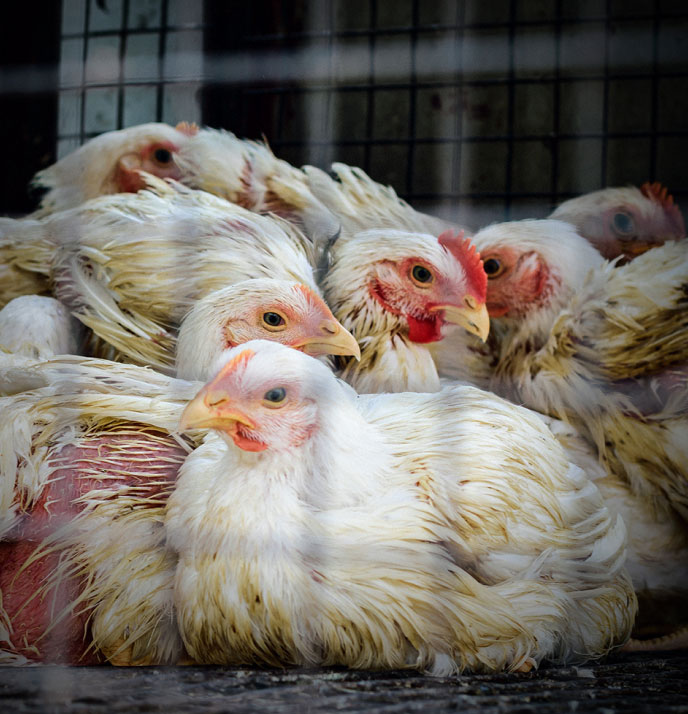
Chickens on industrial poultry farms, like those that supply Gategroup, are trapped in a life of misery from the moment they hatch.
Packed by the thousands into filthy, overcrowded shed, many birds are forced to stand in their own waste, leading to burns on their feet and chest. The ammonia from the waste fills the air, making it hard for birds to breathe, leaving many with painful respiratory issues.
On farms that supply Gategroup, chickens are bred to grow so unnaturally fast that their bodies balloon to sizes their bones cannot support. With legs buckling under their own weight they often collapse, unable to reach food or water.
Many die from heart failure or skeletal disorders before they can even be sent to slaughter.
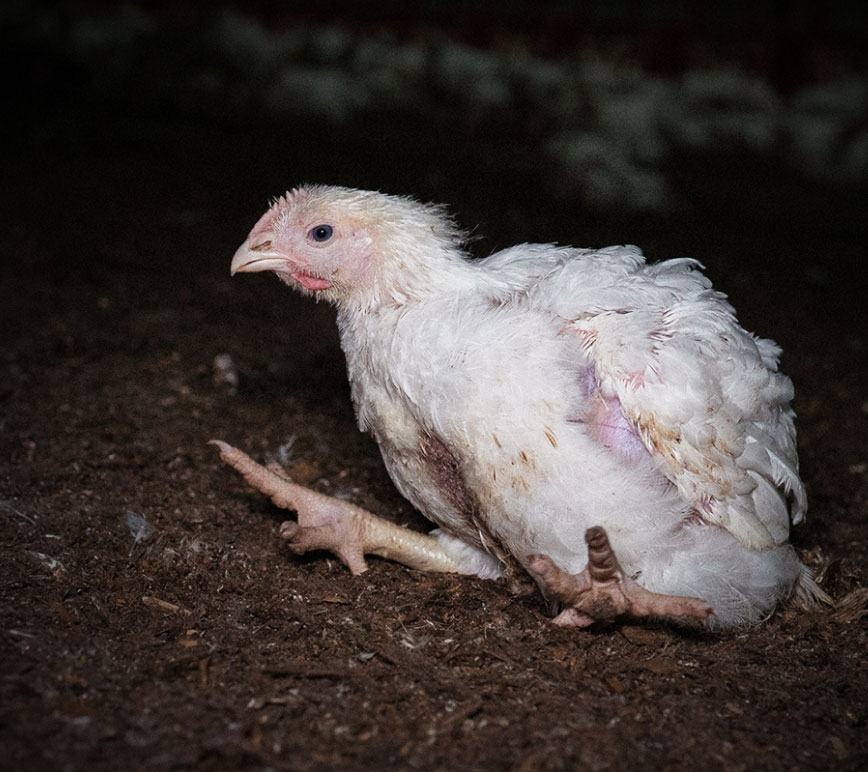
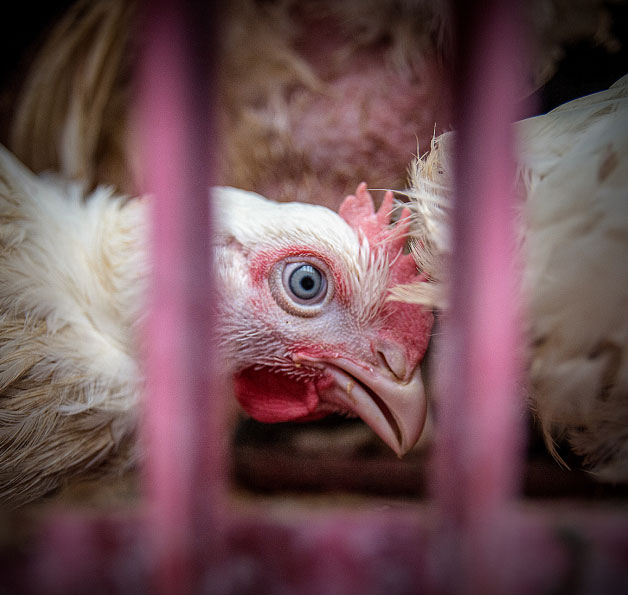
But for those that make it, the suffering only intensifies. Roughly handled and thrown into transport crates, chickens are often injured before they even reach the slaughterhouse. Many are still conscious when their throats are slit, left to bleed out in agony.
Their last moments are filled with fear, pain, and a complete absence of compassion.
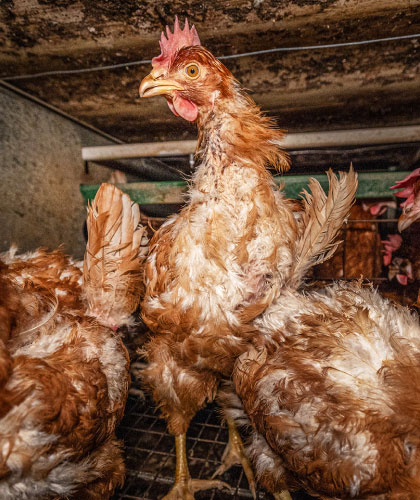
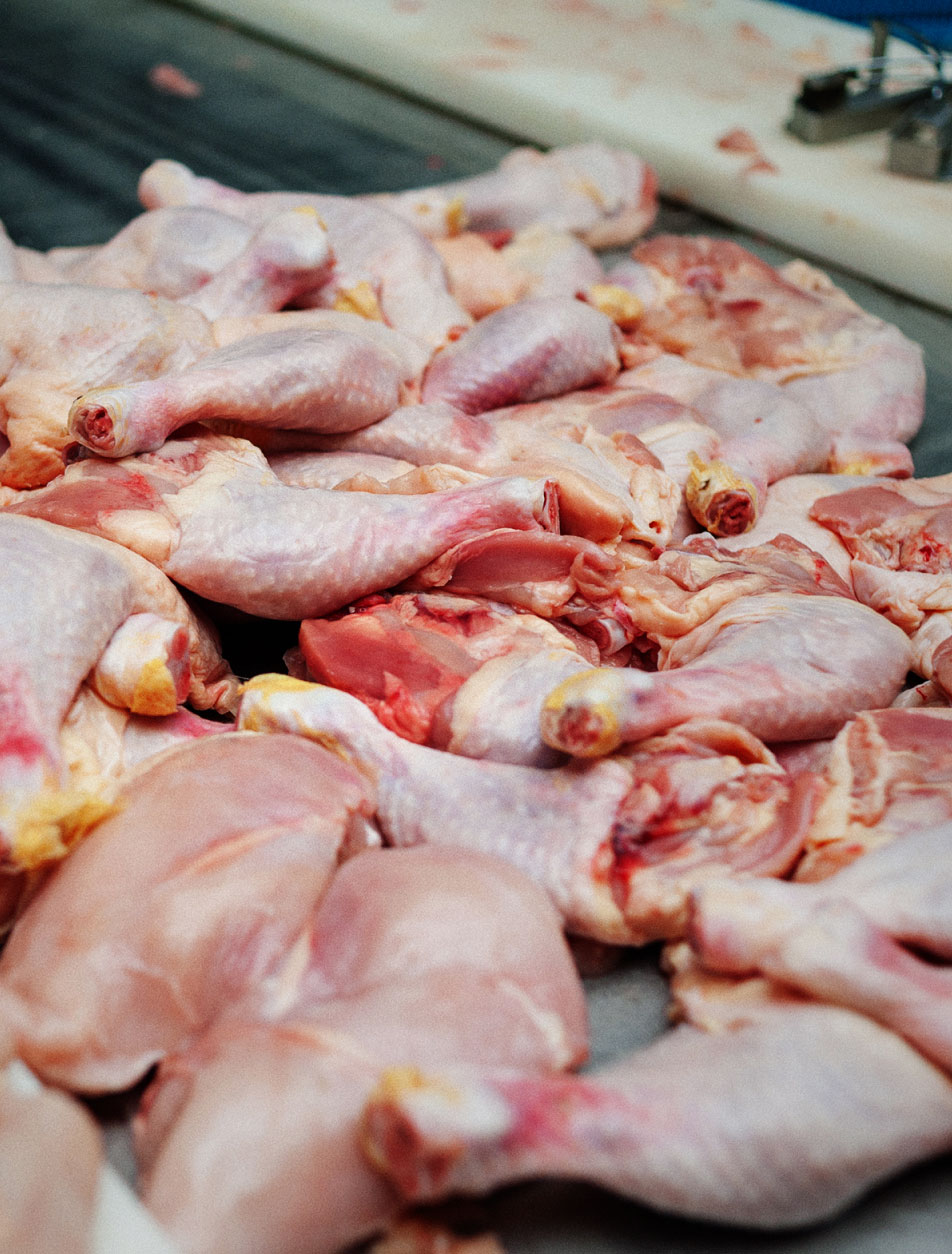
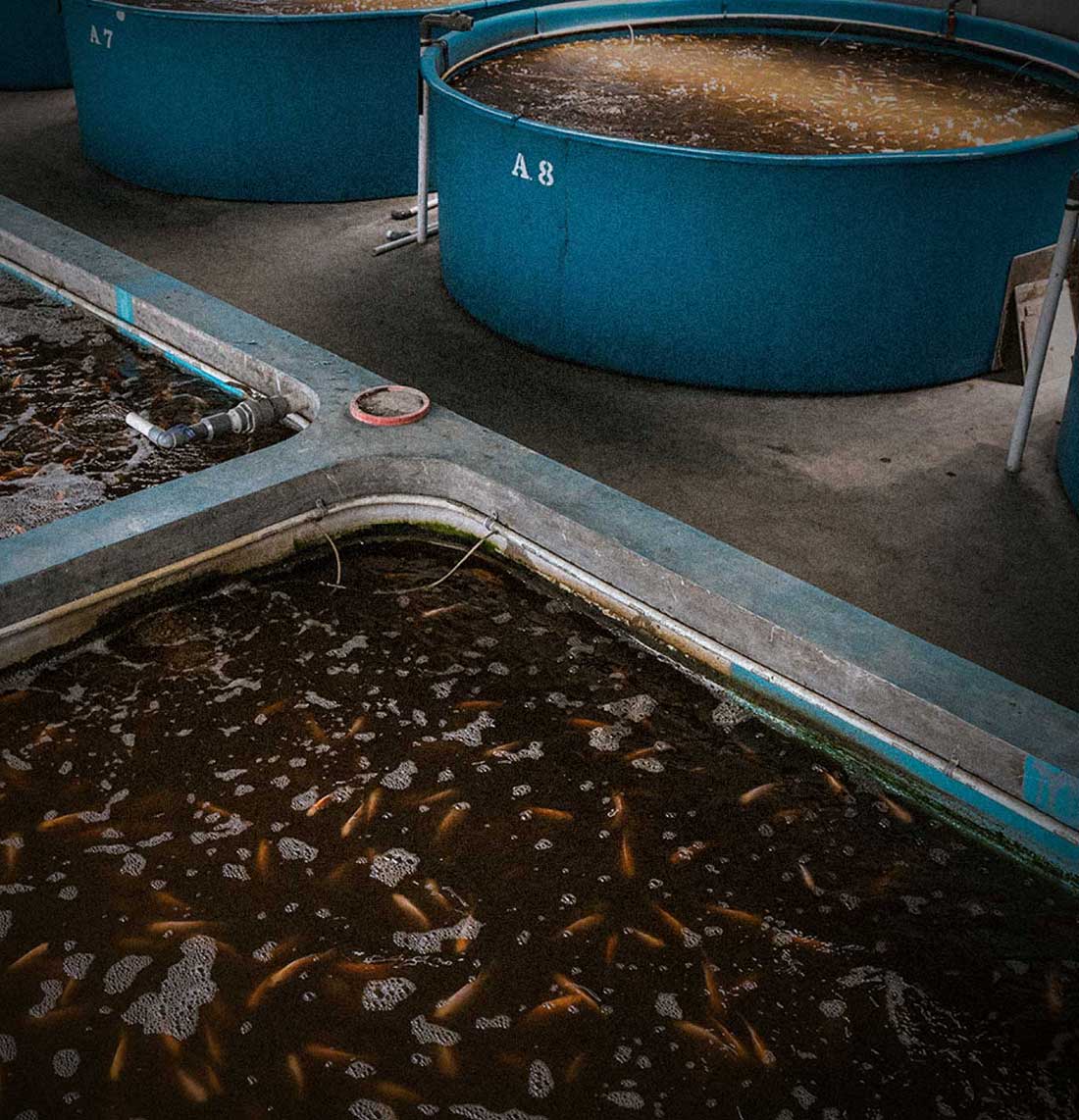
Fish and crustaceans in Gategroup’s supply chain can face a brutal existence.
At factory farm seafood facilities allowed in the Gategroup’s supply chain, animals can be packed into overcrowded, filthy waters where fish’s bodies can become riddled with deformities and open sores from sea lice and other irritants.
Disease is allowed to run rampant, with a large percentage of animals suffering to death from disease before even making it to slaughter.
Wild-caught fish in Gategroup’s supply chain face similar cruelty. Gategroup has no public policy prohibiting cruel and environmentally devastating capture methods from being used.
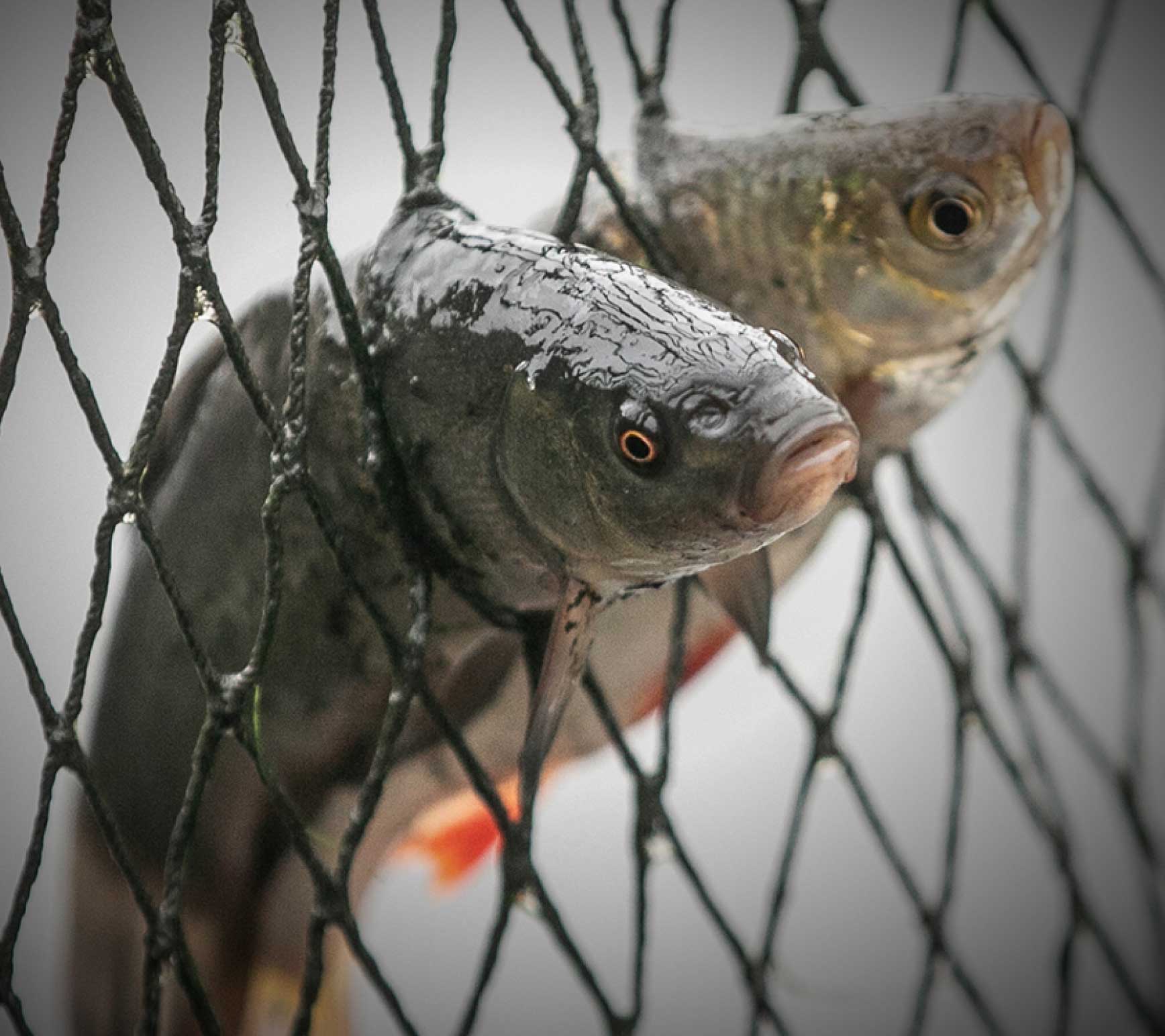
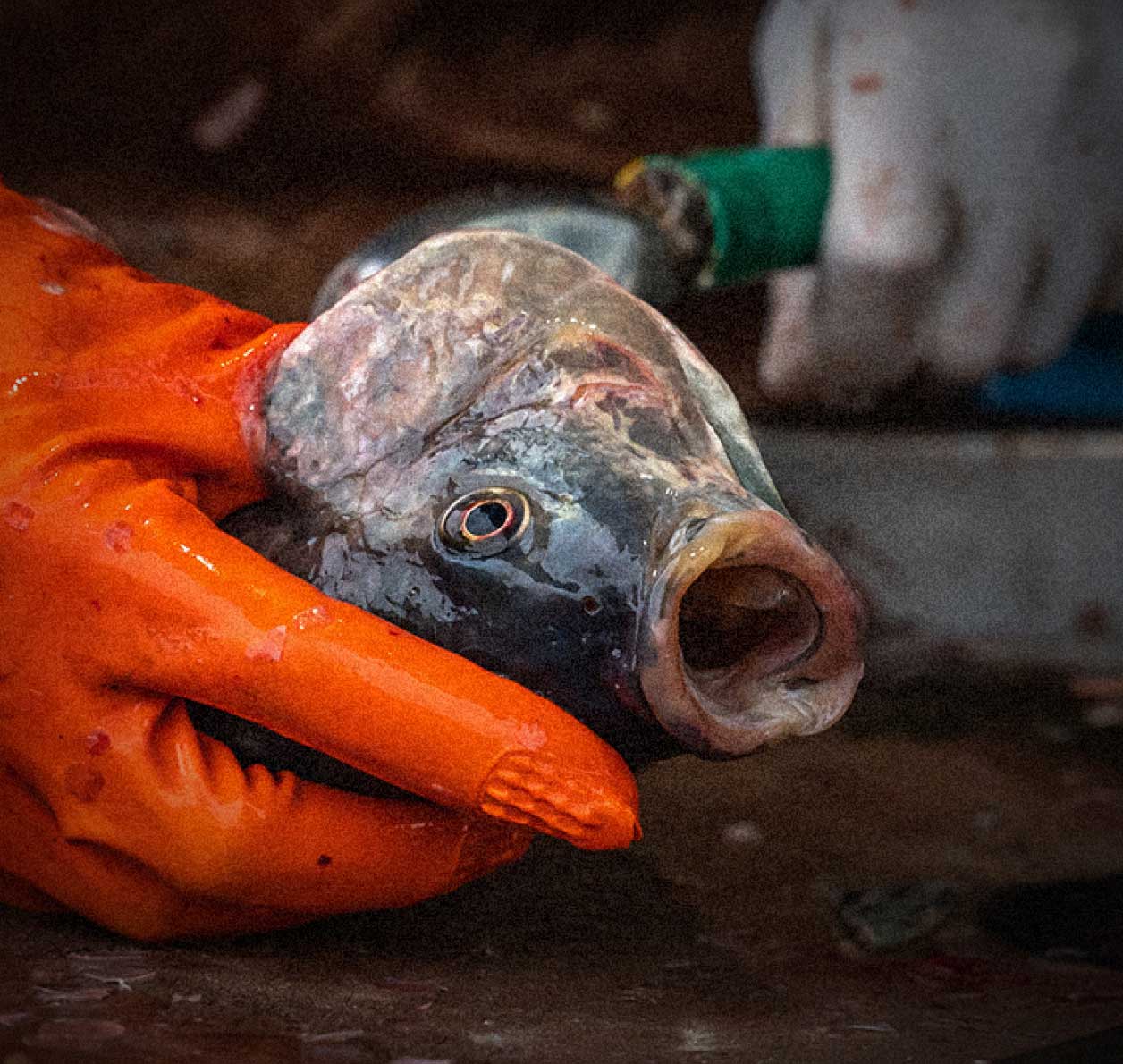
Methods such as trawling and longlining can kill large numbers of bycatch animals, damage local ecosystems, and lead to painful and prolonged suffering as animals linger for days jammed in nets or dangling on hooks.
The slaughter process is no less horrific. Gategroup allows its seafood suppliers to kill animals in the most brutal ways possible, including cutting them open while alive and fully conscious, cooking them while alive and fully conscious, slowly asphyxiating them, or beating them to death.
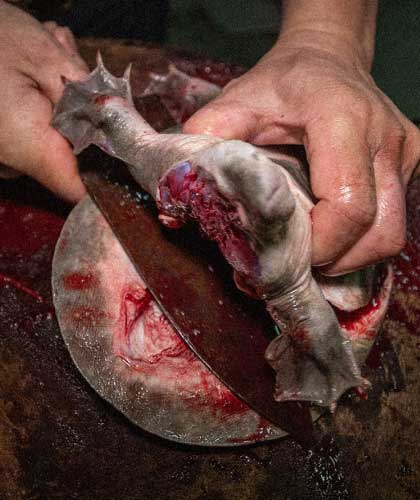
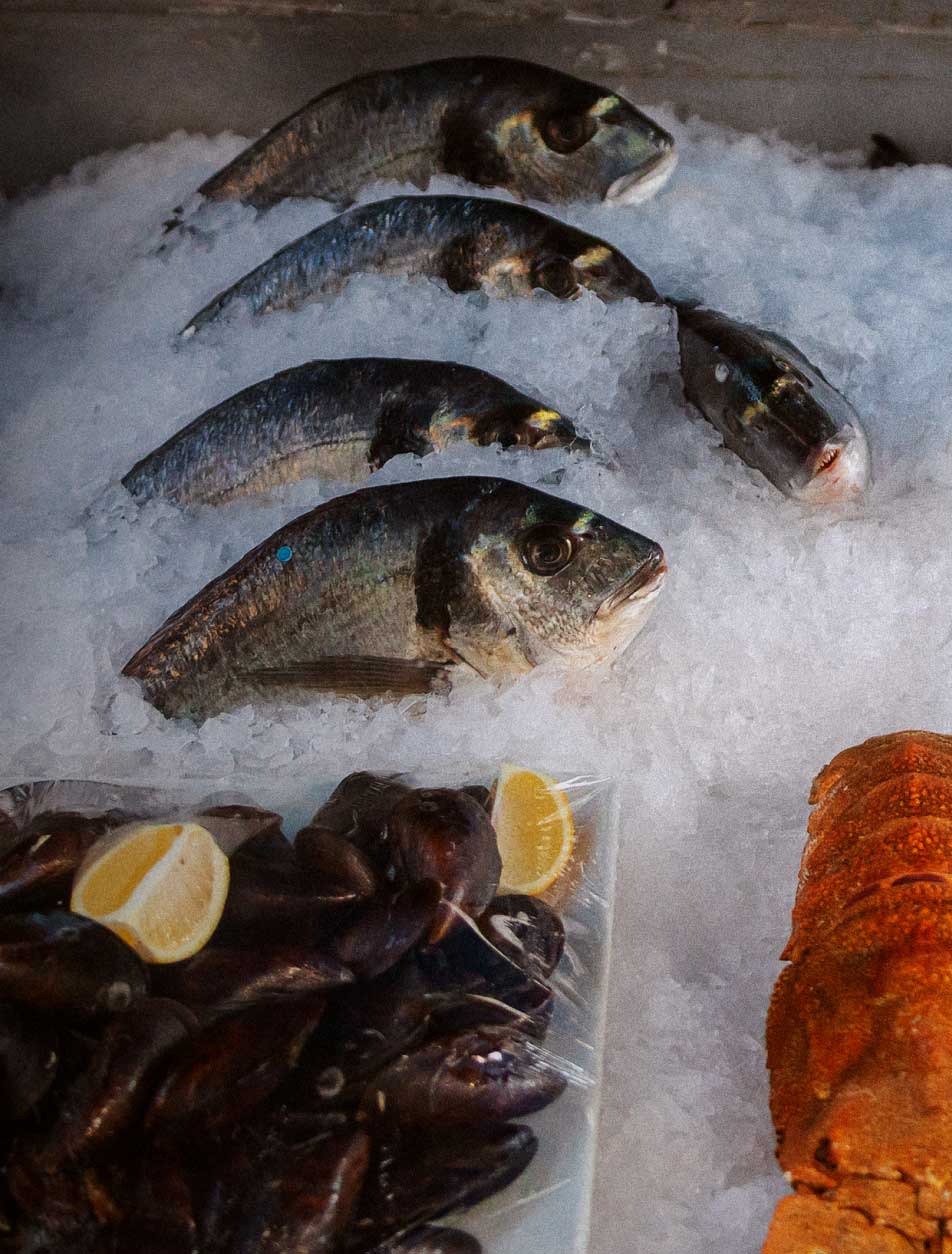
Gategroup and Désiré Mouanga-Biayenda have the power and responsibility to stop permitting these extreme cruelties in its supply chain. The public expects better, and animals deserve to live free from this egregious and unnecessary suffering.
It’s time for Gategroup and Désiré Mouanga-Biayenda to do what many other leading food companies have already done and put policies in place that ensure the Five Freedoms for animals in its supply chain.

